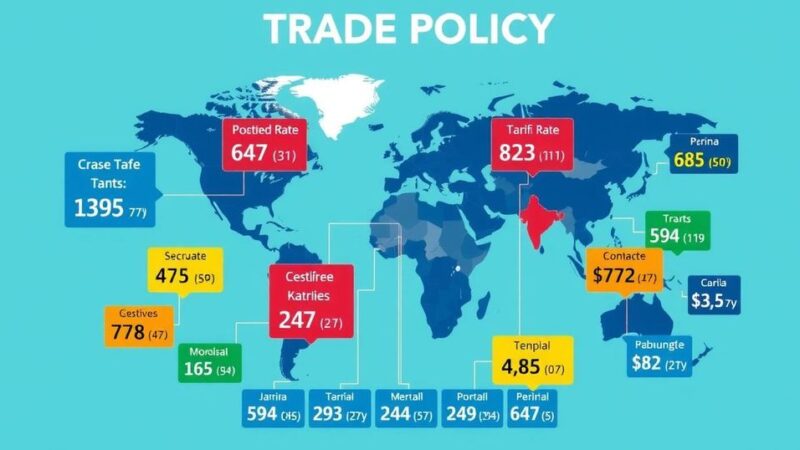Argentina’s Central Bank is accelerating dollar sales to support the peso amid global uncertainties and IMF negotiations. Despite recent positive market reactions to President Milei’s austerity measures, the peso’s exchange rate remains volatile, with a significant gap between official and black market rates. A new IMF loan program is sought, yet the economic situation still poses challenges for the government.
Argentina’s Central Bank is currently increasing its dollar sales in response to rising global economic uncertainties, particularly concerns regarding a new deal with the International Monetary Fund (IMF). Over the past few weeks, the bank has sold more than half a billion dollars in its latest interventions, marking a departure from its previous six-week trend of net dollar purchases.
Under the administration of libertarian President Javier Milei, who has implemented a stringent “zero deficit” austerity program since late 2023, there have been efforts to win the confidence of markets and investors. However, the recovery of foreign currency reserves has been gradual.
Milei is actively pursuing a new IMF program to stabilize finances strained by chronic overspending and fiscal deficits. Yet, the specifics of this program remain uncertain and face potential opposition within Congress, contributing to downward pressure on the peso after a robust performance in 2024.
Currently, the official exchange rate for the peso has fallen to 1,068.5 per dollar, while the black market rate has surged to 1,260 per dollar, indicating a significant gap of around 18%. This disparity had nearly vanished late last year but has widened again in recent years.
Juan Franco, Chief Economist at Grupo SBS, noted that market uncertainty regarding the exchange rate outlook is fueling demand for parallel dollars. He also remarked on rising pressures within the dollar futures market, with increases exceeding the government’s monthly crawling peg of 1%.
The Central Bank recently sold $474 million in its second-largest single-day sale since Milei took office. Despite the gravity of this event, Roberto Geretto from Adcap Asset Management indicated that it could be an isolated incident and emphasized that the bank’s overall purchases exceeding $3 billion this year reflect a strong start for the fiscal period.
Milei noted in a decree that the government inherited a negative $11.2 billion in net foreign currency reserves upon assuming office. As of early March 2023, there has been a $7 billion improvement, although reserves still remain roughly $4 billion in the negative. Notably, Milei has proactively suggested a new loan initiative with the IMF to alleviate Treasury debt with the Central Bank, although formal agreements are yet to be reached.
The administration has committed to relaxing strict capital controls, contingent upon receiving new IMF funding. However, successful inflation control remains a priority, with rates still exceeding 2% monthly despite improvements since Milei’s presidency.
In conclusion, the Central Bank of Argentina is intensifying its dollar sales to stabilize the peso against rising inflationary pressures and global uncertainties. The government’s efforts to secure an IMF deal aim to remedy long-standing fiscal deficits, although challenges remain in rebuilding foreign currency reserves. Continued market vigilance is necessary as the nation navigates substantial economic adjustments under President Javier Milei’s administration.
Original Source: money.usnews.com






